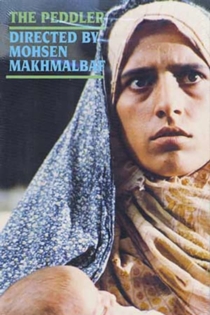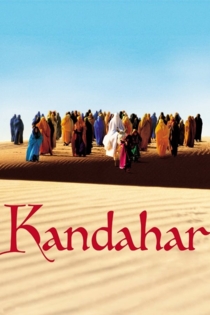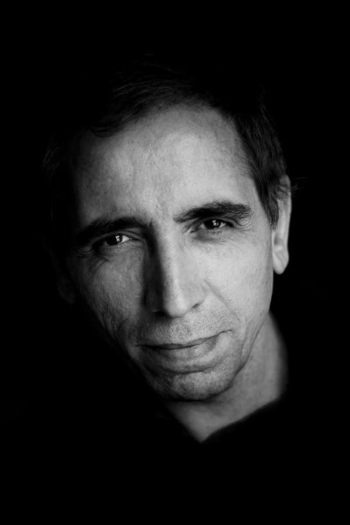
Mohsen Makhmalbaf
1957 (68 лет)Mohsen Makhmalbaf (Mohsen Mäxmälbaf, born May 29, 1957) is an Iranian film director, writer, editor, and producer. During 2007 he was the president of Asian Film Academy.
Makhmalbaf's films have been widely presented in international film festivals in the past ten years. The multi-award-winning director, belongs to the new wave movement of Iranian cinema. Time magazine selected Makhmalbaf's 2001 film, Kandahar, as one of top 100 films of all time. In 2006, he was a member of the Jury at the Venice film festival.
Makhmalbaf left Iran in 2005 shortly after the election of Mahmoud Ahmadinejad and now lives in Paris. As of June 12, 2009, and following the events of the 2009 Iranian presidential election, Mohsen Makhmalbaf has claimed that he has been appointed the official spokesman of Mir-Hossein Moussavi's campaign abroad.
Description above from the Wikipedia article Mohsen Makhmalbaf, licensed under CC-BY-SA, full list of contributors on Wikipedia.
The Story of Film: An Odyssey
Mark Cousins
Mark Cousins, Jean-Michel Frodon
Эпическое путешествие по мировыми столицам от Болливуда до Голливуда, это «золотой век» 20-х годов и появление звука. Это истории секса и мелодрамы в 50-е и великие кинозвезды 50-х и 60-х, масштаба Федерико Феллини. Это американский кинематограф 60-х и 70-х, когда режиссеры пытались изменить мир, появление картин «Звездные войны», «Челюсти» и «Изгоняющий дьявола». Это 80-е, время протеста в кино, новый «золотой век» 90-х и появление новых звезд на небосклоне в наше время.
The Story of Film: An Odyssey

Close-Up
Abbas Kiarostami
Hossain Sabzian, Monoochehr Ahankhah
This fiction-documentary hybrid uses a sensational real-life event—the arrest of a young man on charges that he fraudulently impersonated the well-known filmmaker Mohsen Makhmalbaf—as the basis for a stunning, multilayered investigation into movies, identity, artistic creation, and existence, in which the real people from the case play themselves.
Close-Up
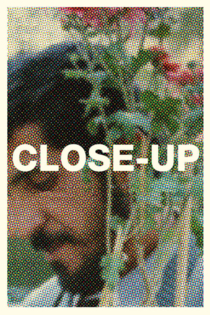
A Moment of Innocence
Mohsen Makhmalbaf
Mirhadi Tayebi, Mohsen Makhmalbaf
A semi-autobiographical account of Makhmalbaf's experience as a teenager when, as a 17-year-old, he stabbed a policeman at a protest rally. Two decades later, he tracks down the policeman he injured in an attempt to make amends.
A Moment of Innocence
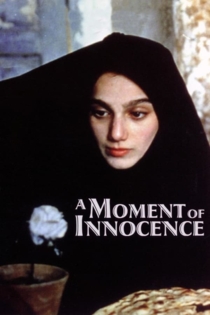
سلام سینما
Mohsen Makhmalbaf
Shaghayeh Djodat, Behzad Dorani
Makhmalbaf puts an advertisement in the papers calling for an open casting for his next movie. However when hundreds of people show up, he decides to make a movie about the casting and the screen tests of the would-be actors.
Salaam Cinema
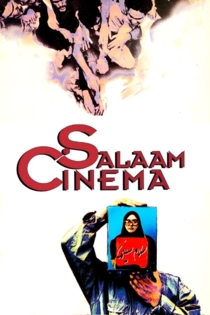
Iran: A Cinematographic Revolution
Nader T. Homayoun
Fereydun Gole, Nosratallah Karimi
Today Iranian cinema is one of the most highly regarded national cinemas in the world, regularly winning festival awards and critical acclaim for films which combine remarkable artistry and social relevance. Iran: A Cinematographic Revolution traces the development of this film industry, which has always been closely intertwined with the country's tumultuous political history, from the decades-long reign of Reza Shah Pahlevi and his son, the rise of Khomeini and the birth of the Islamic Republic, the seizure by militants of the U.S. Embassy in Tehran, and the devastating war with Iraq.
Iran: A Cinematographic Revolution
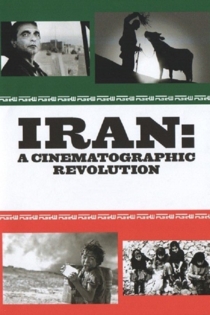
Cinema Cinema
Maani Petgar
Mohsen Makhmalbaf, Ulu Grosbard
This is a film about the making of Salaam Cinema by Mohsen Makhmalbaf in Tehran and it’s eventual screening in Cannes Film Festival. Viewers are introduced to the personal and professional sides of Makhmalbaf and also to the uncontrollable passion for the cinema, held by the Iranian youth.
Cinema Cinema
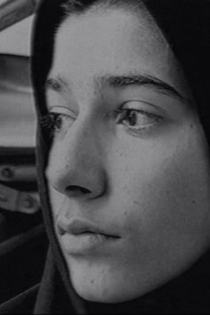
ناصرالدین شاه، آکتور سینما
Mohsen Makhmalbaf
Ezzatolah Entezami, Mehdi Hashemi
The film follows a character known as The Cinematographer, who is looking for someone called Atieh (Future). As he calls out to her, he is magically transported back in time from the early twentieth century to the reign of Naser al-Din Shah in 19th century Iran. Captured by the Shah's guards, he shows films from the history of Iranian cinema to the Shah. The Shah is entranced and eagerly shows his family the apparently magical medium.
Once Upon a Time, Cinema
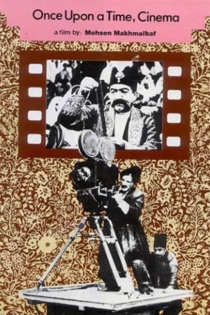
The President
Mohsen Makhmalbaf
Misha Gomiashvili, Dachi Orvelashvili
The President is the story of a dictator of an imaginary country in the Caucasus, who is forced to escape following a coup d’état, and begins a journey to discover his country in the company of his five-year-old grandson. The two travel across the lands that the President once governed. Now, disguised as a street musician to avoid being recognized, the former dictator comes into contact with his people, which he comes to know from a different point of view.
The President
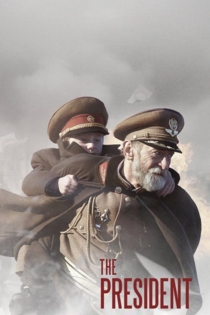
بایسیکل ران
Mohsen Makhmalbaf
Mahshid Afsharzadeh, Firouz Kiani
The wife of Nasim, an Afghan immigrant in Iran, is gravely ill. He needs money to pay for her care, but his day labor digging wells does not pay enough. A friend connects Nasim to a two-bit promoter who sells tickets to watch Nasim ride a bicycle continuously for a week. The promoter brings in sick and aged spectators, haranguing them to find hope in Nasim's strength. Aided by his son, who feeds him as he rides, Nasim grinds out the days and shivering nights. Local officials believe this may be a plot and Nasim may be a spy; they try to sabotage him as do those who bet he won't finish the week. Will desperation alone get Nasim the money? Is any triumph an illusion?
The Cyclist
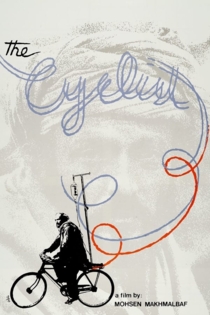
Gabbeh
Mohsen Makhmalbaf
Shaghayeh Djodat, Abbas Sayah
An elderly couple go about their routine of cleaning their gabbeh, while bickering gently with each other. Magically, a young woman appears, helping the two clean the rug. This young woman belongs to the clan whose history is depicted in the design of the gabbeh, and the rug recounts the story of the courtship of the young woman by a stranger from the clan.
Gabbeh
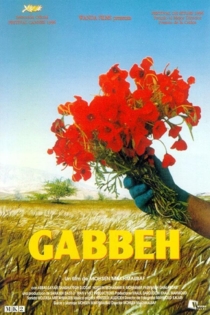
سکوت
Mohsen Makhmalbaf
Tahmineh Normatova, Nadereh Abdelahyeva
Khorshid, a blind child growing up in Tajikistan, is constantly distracted by music and sounds. This frequently causes him to be late to his job as an instrument tuner even though he runs the risk of being fired at a time when his family is in danger of being evicted from their house.
The Silence
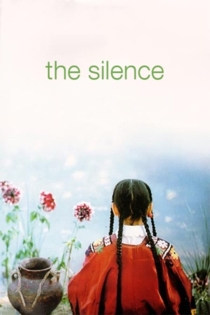
لذت دیوانگی
Hana Makhmalbaf
Mohsen Makhmalbaf, Samira Makhmalbaf
Documentary showing the backstage of production of Samira Makhmalbaf's film Panj É Asr(At Five in the Afternoon), in Kabul, after the fall of the Taliban regime. Everything was recorded with a small digital camera by Samira's 14-year-old sister Hana.
Joy of Madness
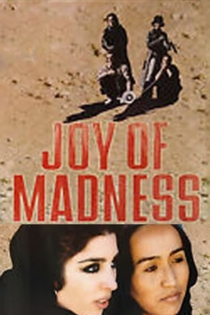
دستفروش
Mohsen Makhmalbaf
Zohreh Sarmadi, Esmaeel Soltaniyan
The movie consists of three episodes that explore the lives of poor and desperate in Iran. In episode one, a very poor couple with many crippled children abandon their newly born baby in hopes that it will have a better future. In the second episode, a mentally impaired and isolated young man tries to take care of his senile mother who is almost dead. In the third episode, a cowardly and desperate peddler tries to escape from his boss.
The Peddler
